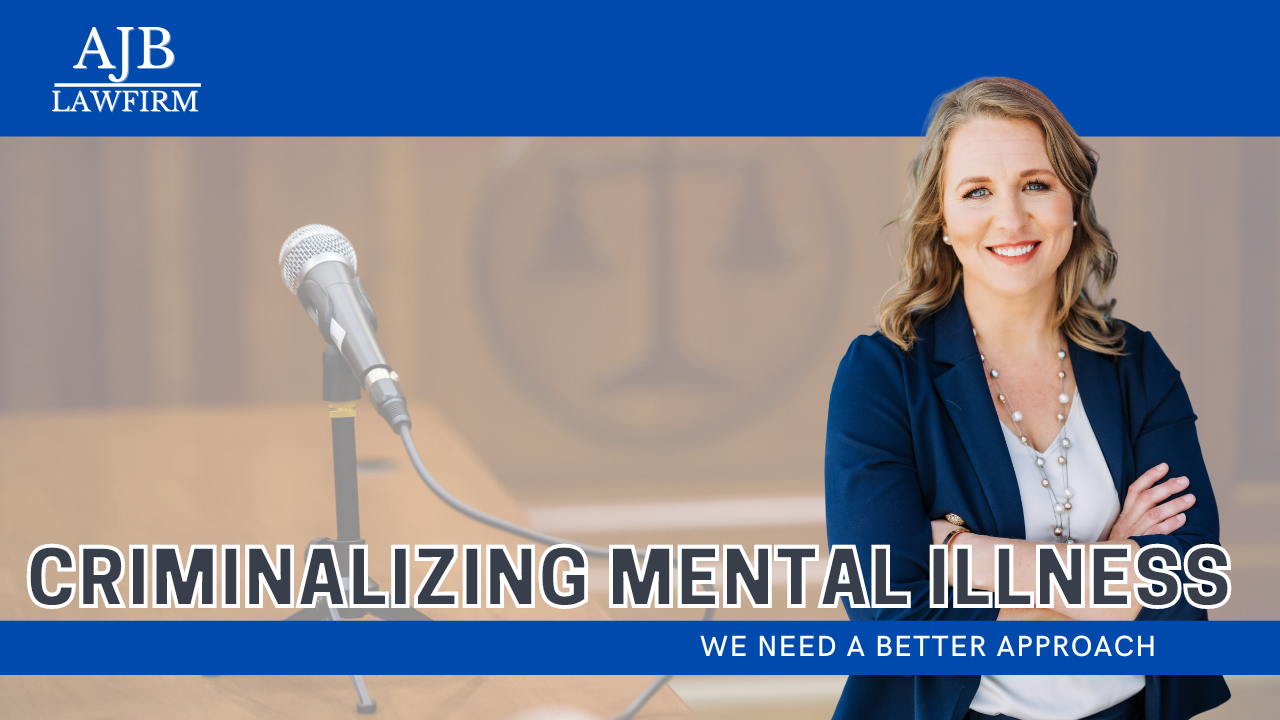The Problem with Criminalizing Mental Illness
Why We Need a Better Approach
In recent years, there has been a growing debate about the intersection of mental health and the criminal justice system. One pressing concern is the arrest and criminalization of individuals experiencing mental health crises, such as suicidal ideation. While law enforcement agencies are tasked with maintaining public safety, is the criminal justice system really the appropriate venue for those grappling with severe mental health issues? Let's explore why this approach is problematic from ethical, social, and public policy perspectives.
Ethical Concerns
Inhumane Treatment
Imagine experiencing a mental health crisis—debilitating fear, hallucinations, or even suicidal thoughts. Instead of receiving medical treatment, you find yourself handcuffed and transported to a jail cell. Jails are not designed to treat mental illness; they are punitive environments that often exacerbate symptoms of mental disorders. Treating mentally ill individuals as criminals compounds their suffering and is a striking lapse in humanity.
Violation of Medical Ethics
People undergoing a severe mental health crisis need medical intervention. The ethical principle "First, do no harm" must guide our approach to treating such individuals. Incarcerating them harms and prevents them from receiving the immediate and targeted medical care they require.
Social Concerns
Stigma
The stigma surrounding mental illness remains a significant barrier to treatment and social integration. When an individual's mental health crisis leads to an arrest, that criminal record can heighten this stigma, making it more challenging to find employment, housing, and even social acceptance.
Family and Community Impact
When a person in a mental health crisis is arrested, the ramifications often extend to their families. Families may already be under immense emotional and financial strain, and a criminal record only exacerbates these challenges. Furthermore, criminalizing mental illness can erode trust between law enforcement and communities, creating a rift that's difficult to mend.
Public Policy Concerns
Misallocation of Resources
Police officers are generally not trained mental health professionals. Redirecting resources from healthcare to law enforcement for handling mental health crises is both inefficient and ineffective.
Revolving Door Syndrome
In the absence of appropriate mental health treatment, arrested individuals are at high risk for reoffending. This revolving door between jails and communities is neither an effective solution nor a humane approach to the problem.
Legal Precedents and Deterrence
Criminalizing actions undertaken during acute mental health crises sets a dangerous legal precedent. Such an approach can deter others from seeking medical help for fear of arrest, potentially leading to tragic outcomes.
Economic Factors
Lastly, the economic burden should not be overlooked. The cost of arresting and incarcerating individuals is far higher than providing preventive mental health services and treatments.
A Call for Reform
The criminalization of mental illness serves no one. It neither assists the individual in need of treatment nor benefits a society continually grappling with the shortcomings of an overburdened criminal justice system. Reforms are essential to channel individuals with mental illnesses into appropriate treatment programs rather than funneling them into jails and prisons that are ill-equipped to handle their conditions.
By advocating for systemic change, including better training for law enforcement and greater investment in mental health services, we can work towards a more humane, effective approach to mental health in America.
